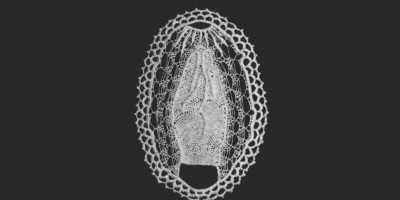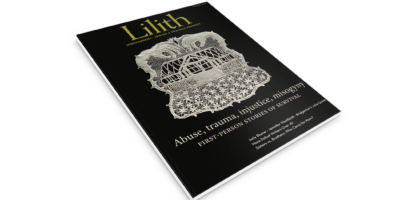
Thank you, Monica Lewinsky!
On a rainy, gridlock-alert day in New York in December 1997, I pondered my lunch options on the Lower East Side. I decided to eat a pastrami sandwich at Katz’s, the deli known for the “I’ll have what she’s having!” scene in “When Harry Met Sally.”
But police cars and ambulances framed Katz’s entrance, lights blinking. The front door was flanked by men in black suits, curlicue wires hanging from their ears.
“Can I have lunch here?” I asked.
A wired-ear man replied, “If you don’t mind being ‘wanded.’”
I held out my arms. “Who’s inside?”
“The President.”
Cool! I surveyed the dining room. Folks were eating lunch; a low din and an occasional clatter filled the room. Nobody was gaping at President Clinton, who sat in the back of the restaurant at a long table with about 10 people, all facing the counter with salamis dangling from the ceiling and the legendary sign “Send a Salami to Your Boy in the Army!” A table-free perimeter surrounded the President and his entourage, dotted with Secret Service agents.

Before ordering, I turned around to look at the President’s table, full of Democratic officials. I smiled broadly.
President Clinton looked up. He saw me smiling and smiled back. Then he beckoned me!
I didn’t know what to do. The President looked at his Secret Service contingent and nodded. They nodded at the President and then at me. I started walking towards his table, my heart thumping.
I was still holding my umbrella in my wet hand when the President rose from his seat, looked me directly in the eyes, and reached across the table to shake my hand.
“Hello Mr. President, I’m sorry, my hand is wet,” I said anxiously, switching the umbrella to my left hand, wiping my right on my purple coat, and feeling awkward. Then I shook his hand, looking up at his warm smile and welcoming eyes.
“That’s ok,” he said kindly. He held onto my hand a moment, continuing to look into my eyes. His hand was large—as so many had reported—his handshake firm, yet friendly. His gaze was all-encompassing. I felt like I was the only person in the room for that moment. He exuded a kind of energy that was completely enveloping.
Seated beside him, C. Virginia Fields, newly-elected as the first Black woman Borough President of Manhattan, snapped her head to see who was talking to the President. Recognizing me, she, too, rose from her seat, said “Hi hon’! How’re you doing?” and leaned over to kiss my cheek.
“You know her?” The President seemed flabbergasted.
Clearly, it was time to leave them, but how do you walk away from the President? Out of the blue, I remembered that the end of the Amidah prayer mimics how you step away from royalty. I said, “It’s an honor to meet you, Mr. President. I hope you have a good visit. Happy holidays!” I took three steps backwards and pivoted to the sandwich counter, heart still racing.
“What’ll you have?” grunted the sandwich man.
“I’ll have what he’s having!”
I got pastrami on rye.
Throughout that holiday season, I regaled people with my story of meeting President Clinton. Only a month later, national news headlined Monica Lewinsky as the focus of a sex scandal with him, raising my story’s cachet. Jokingly I’d say, “All I got was a handshake!”
As the scandal unfolded, Monica was called a “wicked” and “powerful seductress”—as if the President couldn’t possibly have resisted her and no other president had ever had an affair. Others demeaned her, calling her “stupid” or “naïve.” She was ridiculed, the butt of jokes. My reaction evolved in a markedly different way. Soon, I no longer added my jocular punch line. I felt empathy for Monica. Photos of her in her black beret with bright eyes and a smile that could light up an entire city block said to me that she was besotted with Clinton, infatuated with an incredibly charismatic man. To me, her young eyes signaled love, not evil or power.
I thought she believed Bill loved her, or at least cared about her, because he, the President of the United States, must have said so. She must have been heartbroken when he referred to her as “that woman,” as if she didn’t have a name or identity, and humiliated that his denial and her sexual conduct were broadcast all over the world.
I felt all of this about Monica with certainty, not because I had any inside information about her. I had none. Rather, in Monica’s vibrant smile and besotted gaze I saw myself as the awestruck 16-year-old I had been, sitting in the aisle seat at synagogue hoping the charismatic young assistant rabbi would notice me, praying that this wunderkind—the greatest thing since Jewish rye bread—would smile at me! He inspired all his congregants and made each of us feel as if he or she was the only person who mattered at that moment, just like I felt for a split second with President Clinton.
In Monica’s smile and eyes I also saw myself as a slightly older teenager, enthralled, dreaming that when the rabbi had taken me in his arms and kissed me, when he told me that he loved me, that he meant it and would kiss me again. And he did. He told me, convinced me, that his love for me was ineffable, an “I-Thou” relationship, quoting Martin Buber.
In the more than 25 years that had elapsed since that first kiss, I never told anyone about my secret love except one friend in college who didn’t know what to think. I didn’t even tell a succession of therapists who tried to help me understand my chronic singleness. At last, I shared my reactions to Monica and the rabbi with my therapist and my therapy group.
With their help, I began to reckon with the reality that the relationship I had prized, beginning in my teens, was a fraud, morally wrong and damaging. I didn’t understand everything right away. I had to deconstruct the myth that he created—and I believed—to legitimize the relationship. I started to pull at the lies that were woven into my life, unraveling them like the threads of a frayed tallis.
Thank you, Monica Lewinsky.
*Pseudonym



